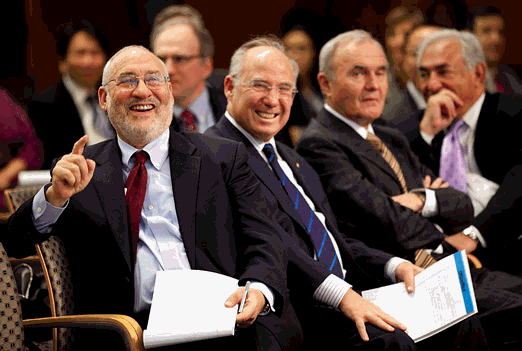
Typical street scene in Santa Ana, El Salvador. (Photo: iStock)
IMF Survey: IMF Triggers Debate on Crisis Lessons
March 8, 2011
- Wholesale macroeconomic policy re-examination needed post-crisis
- World-class panelists take stock, draw first lessons
- IMF promotes ongoing dialogue to find new policy approaches
The IMF is encouraging a wholesale re-examination of macroeconomic policy principles in the wake of the global economic crisis, starting with a high profile conference at its headquarters in Washington, D.C.
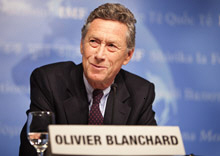
IMF Chief Economist Olivier Blanchard spurs debate with new ideas for a post-crisis macroeconomic framework (photo: IMF)
IMF RESEARCH CONFERENCE
“The last few years have not only been a crisis for the global economy, but also a crisis for economists,” acknowledged IMF Managing Director Dominique Strauss-Kahn, when opening the event.
Several years after the onset of the crisis, Strauss-Kahn said that now was the right time to take stock and tackle some “profound questions about the pre-crisis consensus on macroeconomic policies.”
The March 7-8 conference aimed to take stock of the policy questions posed by the crisis, and promote a discussion about the answers and new policy approaches for the post-crisis era.
Expansive debate
The event brought some serious fire-power to that discussion.
The conference co-hosts are four of the world’s most noted economists; an “illustrious academic quartet”, in Strauss-Kahn’s words, of Olivier Blanchard (Director of the IMF’s Research Department), David Romer (University of California, Berkeley), and Nobel laureates Michael Spence (Stanford University), and Joseph Stiglitz (Columbia University)
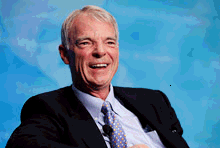
Nobel laureate Michael Spence, Dean Emeritus of Stanford University’s Graduate School of Business, spoke at a session on growth strategies (photo: IMF)
The four were joined by a group of world-class panelists, among them two other Nobelists—George Akerlof (University of California, Berkeley) and Robert Solow (Professor Emeritus, Massachusetts Institute of Technology). Other participants included leading policymakers and academics from both advanced and emerging countries, as well as representatives from civil society, the private sector, and the media.
The conference also triggered a wider debate online among economists. Brad deLong in California suggested that his students watch the live webcast. In New York, Paul Krugman welcomed the conference, referring to the IMF’s open-mindedness on the post-crisis policy framework as “a breath of fresh air in policy debates.”
“Given the IMF’s mandate to advise its 187 member countries on economic and financial policies, it needs to be at the forefront of this effort,” said Blanchard.
New policy ideas
Blanchard spurred this debate and set the tone for discussions in a pre-conference blog post, Rewriting the Macroeconomists’ Playbook in the Wake of the Crisis, on iMFdirect. His recount of the “elegant and conceptually simple” pre-crisis framework was much like a two minute refresher course for a generation of economists.
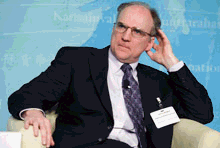
David Romer, Professor of Political Economy at the University of California, Berkeley, was one of the conference’s co-hosts (photo: IMF)
He pointed to key aspects of the old framework that no longer hold post-crisis, including the pre-crisis convergence on a “beautiful construction” of a single monetary policy target—low and stable inflation—and a single policy instrument—the central bank’s policy rate. “Beauty is not synonymous with truth,” Blanchard lamented during the conference.
He added that previously “financial regulation was outside the macroeconomic policy framework [and] … fiscal policy had a limited role at best, at least in the short run.”
For monetary policy alone—the subject of the first conference session—the questions posed by the crisis are likely to keep us busy for years to come.
The crisis “breathed new life into the long-standing debate on whether the interest rate rule, implicit or explicit, should be extended to deal with asset prices,” said Strauss-Kahn. In addition to inflation, “the crisis has added a number of [policy] targets to the list, from leverage to measures of systemic risk,” he added.
Going into the conference, Blanchard also put forward some ideas to guide a re-examination of this framework, including on economic imbalances, interest rates, fiscal policy, capital flows, the international monetary system, and financial safety nets.
The first day’s sessions provided a glimpse of the stature of the debate and the range of ideas that might emerge from the conference. Stiglitz asserted that quantitative easing by the U.S. Federal Reserve was effectively a “backdoor bailout” for banks. And, on the fiscal policy response to the crisis, David Romer argued that the stimulus should have been higher, as much as US$ 2 trillion.
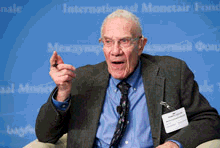
Nobel laureate Robert Solow, Professor Emeritus at the Massachusetts Institute of Technology, was a panelist at a session on fiscal policy (photo: IMF)
Gauging by the high-level conference turnout and the amount of debate it has generated, Blanchard and the IMF are right to be addressing, what David Wessel of the Wall Street Journal, sees as the “big economic questions.”
Cooperative solutions
Strauss-Kahn underscored the need for open discussions to find new policy approaches. “At the IMF, we are taking these lessons very much to heart … and we look to you, the academic community, to be our partner in finding practical solutions to today’s policy challenges.”
International cooperation in the formulation and implementation of policies will be another crucial component of an effective macroeconomic policy framework. “Policy cooperation has become more complex in the second phase of crisis. But we shouldn’t forget that the need for policy coherence and consistency was underscored in dramatic fashion by the crisis’ first phase,” IMF First Deputy Managing Director John Lipsky said.
Participants at the conference are focusing on six key areas: monetary policy, fiscal policy, financial intermediation and regulation, capital account management, growth strategies, and the international monetary system. They will also seek to make concrete policy recommendations for how to revive sustainable growth while safeguarding macroeconomic and financial stability.
A key goal of the conference is to promote an ongoing dialogue that extends beyond the corridors of the IMF. The conference is being webcast live. After the conference, Blanchard plans to open an online discussion site, hoping that “many can join us and contribute as we continue to search for new approaches to the world’s changing macroeconomic and growth challenges.”
